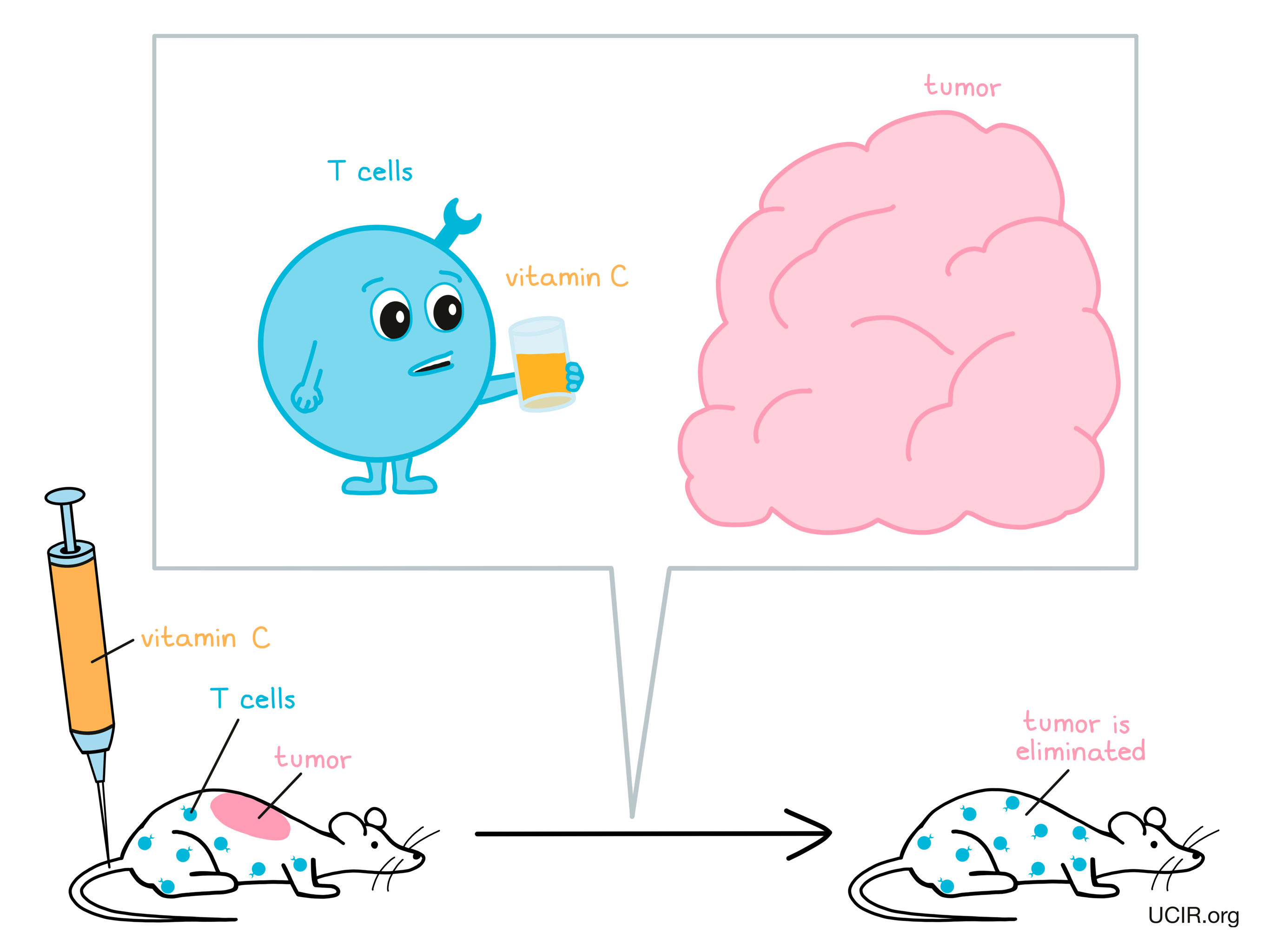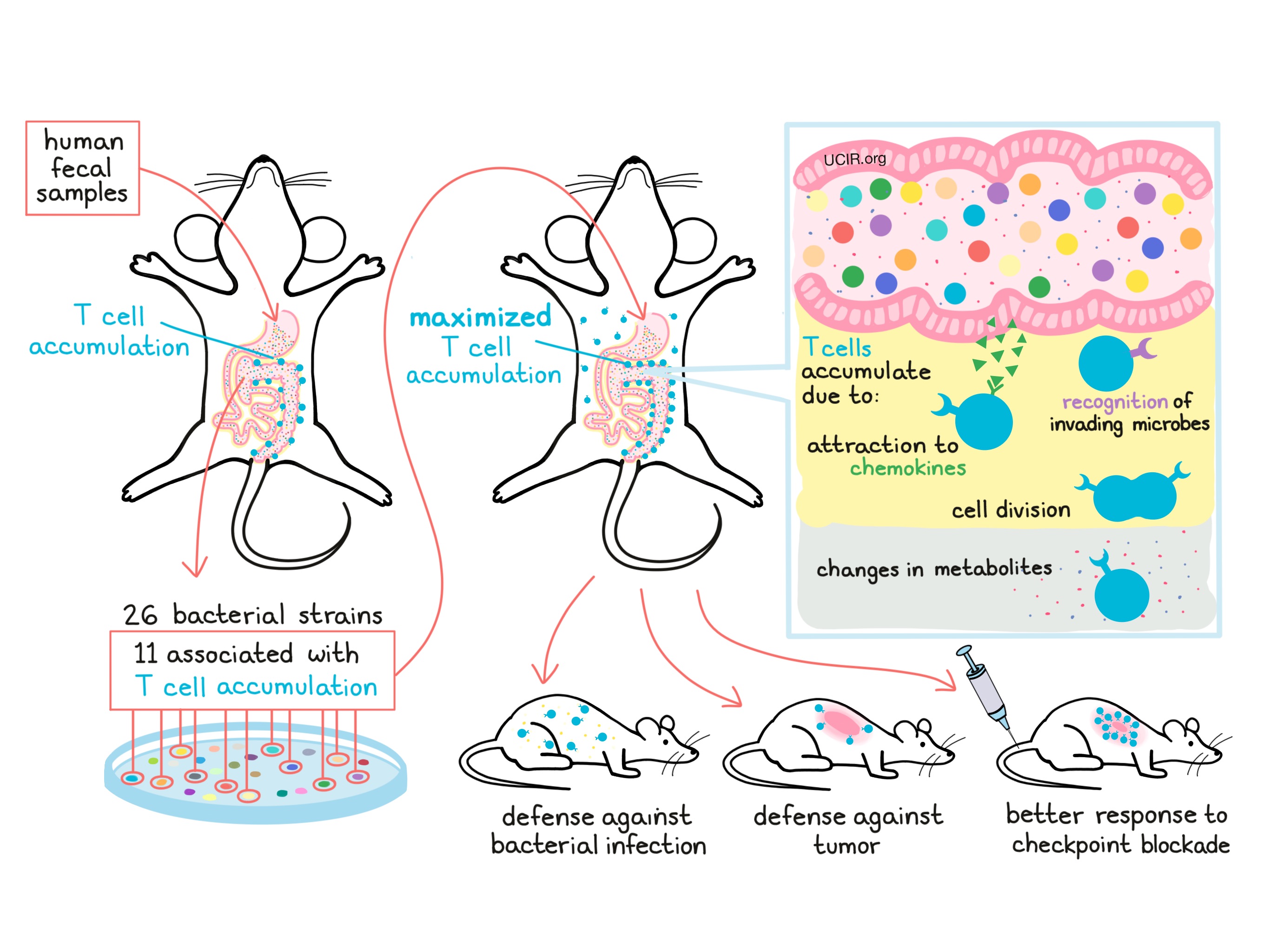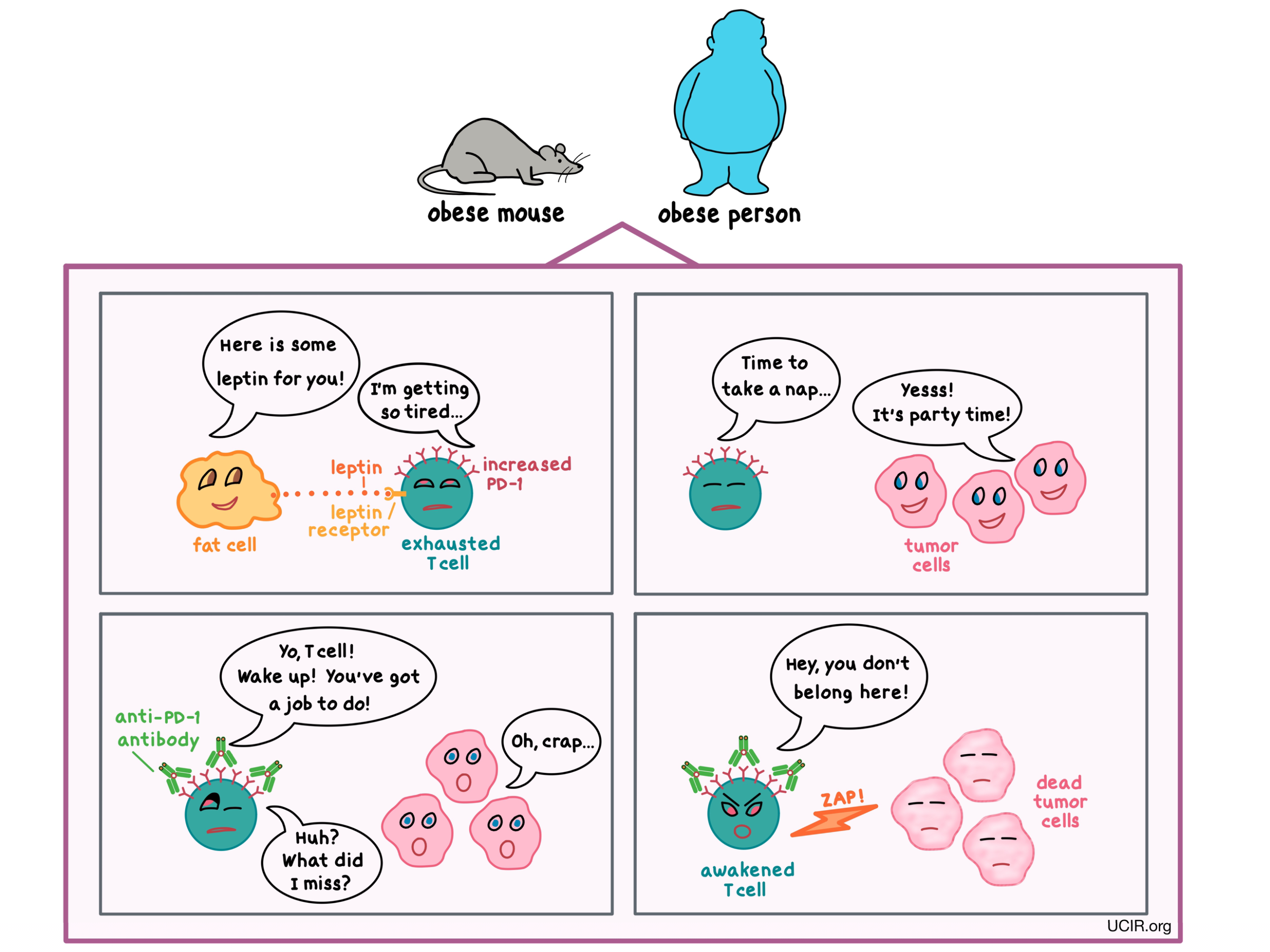Vitamin C may boost the immune response to cancer
2020-06-01

We’ve all heard that vitamin C can help boost immunity when we’re fighting off a cold, but could it also be used to boost the immune response to cancer? Several studies in the past have investigated vitamin C for its direct anticancer effects, with mixed results, but few have explored how vitamin C might impact the immune system’s ability to fight cancer. With interest in immunotherapies rising, a team of researchers led by Federica Di Nicolantonio and Alberto Bardelli from the University of Torino in Italy investigated the effects of vitamin C, along with immunotherapies, and found that it could, in fact, boost immune responses to cancer in mice, but it took a lot more than you’d get from a glass of orange juice.
To study the effects of vitamin C on cancer, the researchers used mouse models of colorectal cancer, breast cancer, pancreatic cancer, and melanoma. To figure out what role the immune system plays, the researchers used some mice with normal immune systems, and others with compromised immune systems lacking T cells and B cells, which are critical in fighting off infectious diseases and cancer. The use of vitamin C in mice had no effect on cancer growth in mice with compromised immune systems, but delayed cancer growth in mice with normal immune systems, confirming to researchers that vitamin C acts on the immune system, specifically on B cells and/or T cells, boosting their ability to fight the tumor.
Looking more closely at T cells, which are known to play an important role in many immunotherapies, the researchers found that vitamin C worked by boosting the T cells’ ability to attack. They also found that both of the main types of T cells – helper T cells and effector T cells – needed to be present for the immune response to function, as the two subtypes tend to work together to coordinate a strong response.
Given that vitamin C appeared to enhance the immune response to cancer, Di Nicolantonio, Bardelli, and their team investigated whether vitamin C might improve responses to common immunotherapies, which also work by boosting immune responses to cancer. In mouse models of various cancer types, a triple combination therapy combining high doses of vitamin C with two checkpoint blockade immunotherapies that are approved in many countries – PD-1 blockade and CTLA-4 blockade – was tested. In all of the mouse models, the triple combination therapy was more effective than any of the individual therapies. In mice with certain cancers, including a model of large tumors that typically don’t respond to immunotherapies, the treatment completely eliminated tumors in some of the mice.
In addition to being approved for numerous types of cancer, some checkpoint blockade immunotherapies are approved for use in patients with any cancer type as long as their cancer has a genetic characteristic called microsatellite instability, which makes the cancer more mutated and more vulnerable to immune attacks. To test the effects of vitamin C in the treatment of these types of tumors, the researchers utilized a mouse model of cancer that features this genetic characteristic and found that vitamin C alone had a clear anti-cancer effect. The addition of each checkpoint blockade – PD-1 blockade or CTLA-4 blockade – increased the cancer-fighting effects. In fact, the use of vitamin C with CTLA-4 blockade worked as well as the combination of CTLA-4 blockade with PD-1 blockade and led to the complete elimination of tumors in most of the mice.
In mice whose tumors were eliminated, the disease never relapsed, and the mice remained tumor-free until their death, suggesting that the treatment had cured them. When the scientists tried to re-introduce the same types of cancer into the mice, the new cancer was rejected, suggesting that the immune system remembered the cancer and continued to protect the mice from it. If the same were to hold true in patients, this could mean long-term protection from the same cancer returning.
Zooming in on how vitamin C helped the immune cells, the researchers found that the triple combination therapy – consisting of vitamin C, PD-1 blockade, and CTLA-4 blockade – encouraged T cells to infiltrate tumors and become activated, leading to a stronger immune attack within tumors.
While vitamin C did not have a strong effect in every tumor type that was tested, it was highly effective in some, meaning that it does have the potential to enhance tumor-killing immune functions and improve the effects of immunotherapies in certain cancers, including cancers with high microsatellite instability. So far, these effects have only been shown in mice, but given that vitamin C did not have any severe side effects in mice, and is known to be safe for use in humans, even at very high doses, testing this strategy in clinical trials may not be far off. If vitamin C can enhance the effects of checkpoint blockades, it may be possible to use lower doses of those treatments, which could help to limit toxicities and side effects. Vitamin C alone has been tested in patients with cancer and so far it has not been shown to have a clear benefit. However, in combination with immunotherapy, vitamin C could provide just the right immune boost.
by Lauren Hitchings




